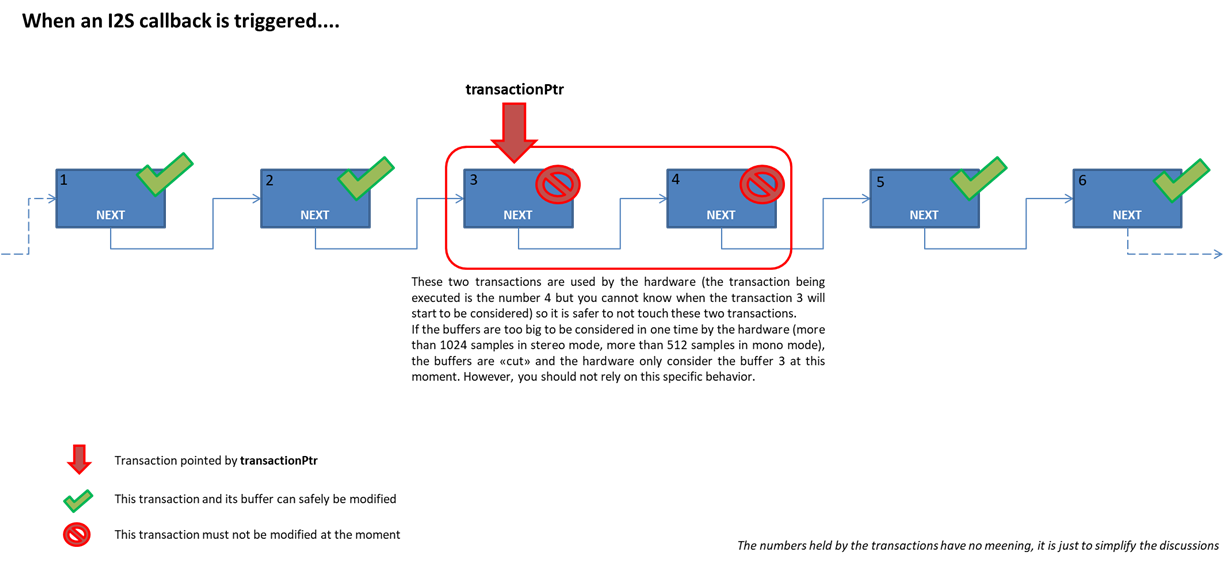Other Parts Discussed in Thread: TLV320AIC3254
Tool/software: TI-RTOS
Hi ,
We are looking forward to the 3.20 SDK, but we have some functions need to verify first, please refer to the following data flow:
We can stream audio data to peer device, but the output sound is very noisy(we known the root cause is that new I2S driver doesn't support true I2S format )
In the old I2S driver, it provides the parameters fro setting I2S delay mode:
#define I2SCC26XX_FormatLJF 0
/*! \sa I2SCC26XX_FormatLJF */
#define I2SCC26XX_FormatI2SandDSP 1
/*! \sa I2SCC26XX_FormatLJF */
#define I2SCC26XX_FormatRJFmin 2
/*! \sa I2SCC26XX_FormatLJF */
#define I2SCC26XX_FormatRJFmax 255
After changed to LJF mode, the noise level becomes smaller. we can hear the normal sounds, but it has a little background noise.
Do you have any suggestions to us???
Thanks.
BR
Trevor




